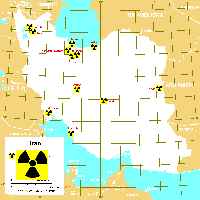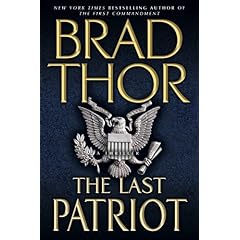Daveed's Book "My Year Inside Radical Islam'
http://www.frontpagemag.com/Articles/ReadArticle.asp?ID=26697
My Year Inside Radical Islam
By Jamie Glazov
FrontPageMagazine.com January 31, 2007
Frontpage Interview's guest today is Daveed Gartenstein-Ross, a counterterrorism consultant. He frequently appears as an analyst on ABC, the Fox News Channel, MSNBC, al-Jazeera, and talk radio, and writes for publications that include Reader's Digest, Commentary, The Weekly Standard, and The Wall Street Journal Europe. Gartenstein-Ross's rise in the field has been aided by a very unusual background: born into a Jewish family, Daveed converted to Islam while in college, and his first job after college was with the Al Haramain Islamic Foundation, an international Wahhabi charity that proved to be an al-Qaeda financier. Daveed's new book, My Year Inside Radical Islam, documents his time working at Al Haramain.

FP: Daveed Gartenstein-Ross, welcome to Frontpage Interview.
Gartenstein-Ross: Thanks, Jamie. It's an honor to join you. I actually published my very first article about radical Islam in FPM. Although that was just a little over two years ago, it feels like ages have gone by since then.
FP: Tell us a bit about your youth and how you ended up converting to Islam.
Gartenstein-Ross: I had an idiosyncratic religious upbringing. My parents were New Age hippie Jews with syncretistic beliefs: when I was growing up, artwork of Jesus graced our living room and a small statue of Buddha stood in the backyard. My parents thought that truth and wisdom could be found in all spiritual traditions.
Some of my early debates with Christian friends triggered spiritual questions for me. I struggled most with the "liar, lunatic, or Lord?" argument first advanced by C.S. Lewis in his classic work Mere Christianity but popularized for college age readers by Josh McDowell. The argument was that there were only three possible things Jesus could be: a liar, a lunatic, or the Lord. Since Jesus claimed to be God in the New Testament, you had to either accept his divinity or else believe that Jesus had absolutely nothing to offer -- since he was either lying or deluded about an issue as fundamental as the nature of God. By the time I was a junior in college, I had a couple of brushes with death that made my spiritual questions particularly intense. I started to learn about Islam at that time, through a college friend, al-Husein Madhany. I felt myself attracted to the faith, and it seemed to answer the "liar, lunatic, or Lord?" argument by posing a fourth alternative: Jesus was a prophet with a close relationship with God, but he had never claimed divinity. Rather, his words were distorted over time.
FP: So what was the process of radicalization inside Al Haramain, the radical Islamic charity you worked for? And how did it happen that teachings that you once held as abhorrent eventually struck you as compelling?
Gartenstein-Ross: When I took the job, I assumed that I wouldn't see eye-to-eye with my coworkers on some spiritual matters, but that we could simply agree to disagree. Little did I realize that my ideas would instead fall into line with theirs. There were a number of reasons for this. I felt a great deal of peer pressure to accept radical conclusions. I complied more and more with external manifestations of the faith (growing a beard, eating only with my right hand, rolling my pants legs up above my ankles, refusing to pet a dog or shake hands with women) that were themselves not radical, but coupled with the prevalent teachings inside Al Haramain pushed me in a radical direction. The biggest factor, however, was that over time I became persuaded intellectually by the theological case advanced by my coworkers and the visiting scholars who frequently joined us.
FP: Can you give us some insights into other converts who became radicalized (i.e. Adam Gadahn, John Walker Lindh, etc.)? Are there parallels to your story?
Gartenstein-Ross: There are parallels to both Gadahn and Lindh. We all had fairly unusual religious upbringings and were looking for spiritual answers. Like both of them, one of the key elements in my radicalization was adopting a legalistic interpretation of the faith that became increasingly rigid. Raffi Khatchadourian's excellent New Yorker article on Adam Gadahn outlines his spiritual development. After his conversion, Gadahn joined a small Islamic "discussion group" that was quite legalistic. Zena Zeitoun, a black convert to Islam, told Khatchadourian: "Everything was haram [prohibited by Islamic law] to them in the
A key moment that, for me, was the bridge to accepting a fully legalistic interpretation of Islam was when I stopped listening to music -- something that many conservative Muslims regard as haram. This was not easy: I had loved music ever since I was a kid, and had an enormous CD collection. But after wrestling with the issue, I decided that I would stop listening to music, and even broke in half a favorite mixed tape from college. For Adam Gadahn, the moment that he stopped listening to music came very early in his spiritual development -- and it must have been very difficult for him, as he had been a death metal afficianado, and even a musician of sorts.
John Walker Lindh's fascinating Usenet postings (as doodoo@hooked.net) also reveal him becoming legalistic, as well as increasingly agitated by theological deviance. In July 1996, he asks in alt.religion.islam if musical instruments are actually haram. In May of the following year, he explodes at a Five Percenter (a member of an offshoot of the Nation of Islam that teaches that the black man is God) who claimed that the rapper Nas was a god: "Is Nas indeed a 'god'? If this is so, then why is he susceptable [sic] to sin and wrongdoing? Why does he smoke blunts, drink moet, fornicate, and make dukey music? Why is it if he is a 'god' that one day he will die? That's a rather pathetic 'god' if you ask me." By July 1997, Lindh was offering to sell his entire music collection.
FP: What are your thoughts about how radical leadership can drastically alter the dynamics in a Muslim community? Take, for example, the case of the community in
Gartenstein-Ross: Radical leadership can have a tremendous impact on the dynamics of the community. This happened in
Incidentally, there is still a Muslim community in
FP: Share with us your climb out of radicalism and conversion to Christianity.
Gartenstein-Ross: If there's one thing that working for a Wahhabi charity can do for you, it is make you step back and rethink your religious views. In the summer of 2000, after my first year of law school, I found that I missed the tolerant, idealized version of Islam that I once practiced. But by this time my views on faith had shifted: I no longer saw the purpose of religion as forging a relationship with God that felt comfortable, but instead believed that I needed to truly understand the relationship that God wanted with me. I began that summer studying the Qur'an, the ahadith (Muhammad's recorded sayings and doings), and trying to revisit whether the moderate version of the faith that I once knew was indeed viable. Midway through the summer, during a stroll through
FP: Do you have a story or two for us about how other people who became radicalized as Muslims have had to reconstruct their faith?
Gartenstein-Ross: Yes, there are a lot of people who have been radicalized who end up reconstructing their faith. Some leave Islam for another religion, as I did. Others reconstruct their faith and remain Muslim, but with a transformed practice. My college friend al-Husein Madhany drifted toward radical Islam at the same time I did. Today he remains a devout Muslim, but his practice of Islam is quite different. He again has a moderate practice, and I'm happy to say, is again the same friend who once meant so much to me. There's another Muslim with whom I discussed my book within the past few months who said that my story resonated with her: that she too at one point held radical views, but was able to reconstruct her faith and emerge with a moderate practice. These kind of discussions help give me hope.
FP: So what is the best way we can fight this terror war in an ideological sense? What is the most effective way we can help those Muslims who seek to fight the fanaticism within their religion?
Gartenstein-Ross: This is a critical question, one where I don't think the answer is obvious. In fact, I think the answer is both sufficiently non-obvious and also sufficiently important that I may devote my next book to exploring it.
Rather than attempt to prescribe at this point the best way to help Muslims fight fanaticism within their religion, I'll address the first part of your question: how do we fight the terror war in an ideological sense? There is a critical first step that most policymakers, analysts, and journalists haven't taken: understanding the importance of ideology to this conflict, and really seeking to understand the ideology of radical Islam. As the people charged with making decisions come to better understand this ideology, they will be able to adopt more informed policies. But almost five and a half years after 9/11, I'm disappointed that many critical decision-makers haven't developed even a basic understanding. The fact that important counterterrorism officials don't even know which groups are Sunni and Shia is indicative of the fact that many people charged with defending our national security are in fact committing professional malpractice.
FP: Daveed Gartenstein-Ross, thank you for joining Frontpage Interview.
Gartenstein-Ross: It has been a pleasure to join you, Jamie.
*
To read the Dinesh D'Souza-Jamie Glazov debate, click here.

































0 Comments:
Post a Comment
<< Home